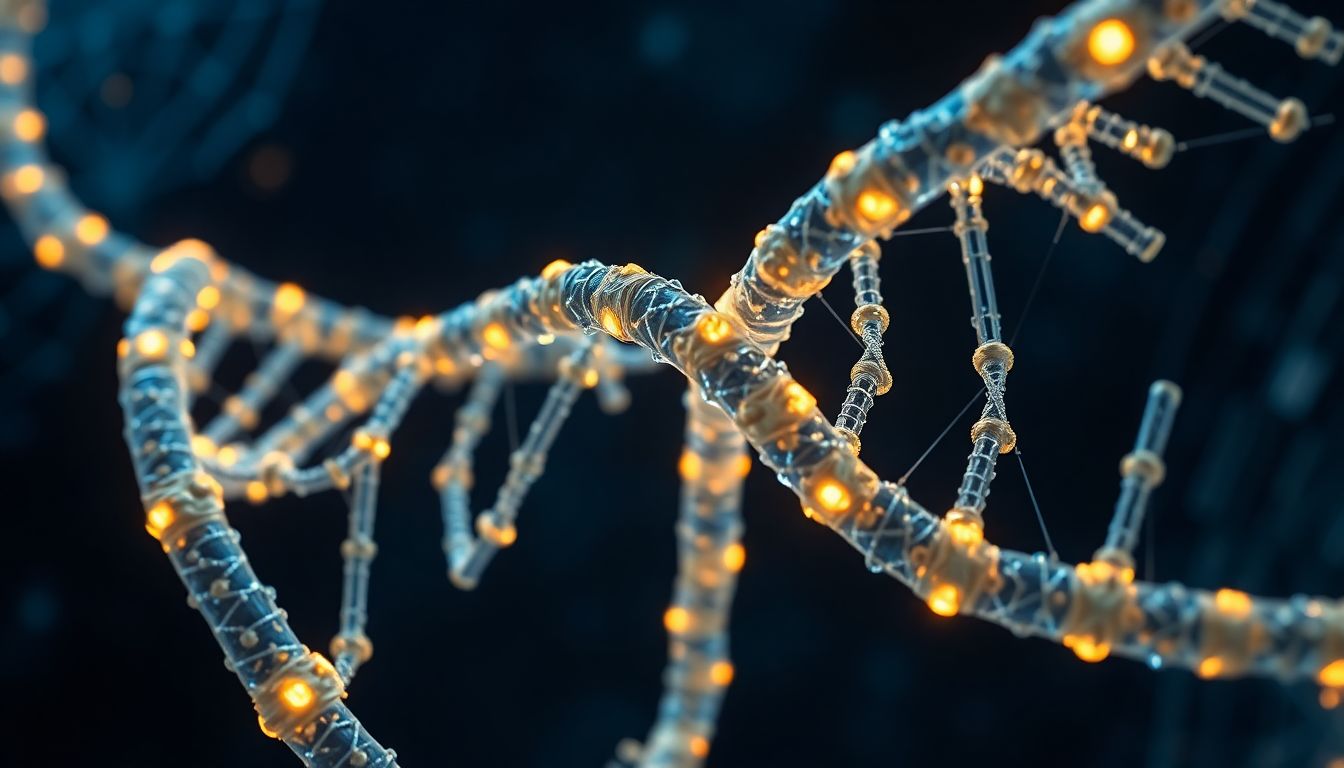
Can AI Rewrite Our Human Genome? The Dawn of AI-Powered Gene Editing
In a groundbreaking development, researchers have successfully edited DNA in human cells using gene editors fully designed with artificial intelligence. This milestone could reshape how we approach genetic disorders and enhance human abilities. With technologies like CRISPR-Cas9 paving the way, the integration of AI promises unprecedented potential in gene editing.
Understanding AI-Driven Gene Editing
How AI Designs Gene Editors
AI utilizes complex algorithms and vast datasets to determine the most effective ways to edit genes. These systems analyze genetic sequences to identify target genes and potential edit points. By simulating various scenarios, AI can predict the outcomes of genetic changes, minimizing trial and error.
Advantages of AI in Gene Editing
AI brings several advantages to gene editing:
- Increased Precision: AI can identify targets with high accuracy.
- Efficiency: Reduces the time needed to develop gene editing tools.
- Reduced Off-Target Effects: Decreases the chances of unwanted changes in the genome.
For example, studies show AI-designed tools can achieve a 90% reduction in off-target effects compared to traditional methods.
Current Limitations and Challenges
Despite its potential, AI gene editing faces challenges:
- Ethical Concerns: The capability to change human DNA raises moral questions.
- Computational Power: High-performance computing resources are needed for complex analyses.
- Unexpected Outcomes: Algorithms may not predict all possible effects of gene editing.
Real-World Applications of AI Gene Editing
Treating Genetic Diseases
AI-driven gene editing has shown promise in treating genetic disorders like cystic fibrosis and sickle cell anemia. For instance, research indicates that using AI to design treatments could potentially cure these conditions in a significant percentage of patients.
Enhancing Human Capabilities
The notion of using AI to enhance human physical or cognitive abilities sparks debate. Potential enhancements could range from improved memory to increased strength. However, these ideas raise ethical dilemmas about "designer" traits and equity.
Agricultural Applications
AI-designed gene editors also play a crucial role in agriculture. By improving crop resilience and disease resistance, these technologies can enhance food production. For instance, developers have created genetically modified crops that withstand harsh climates, increasing yield by up to 30%.
Ethical Considerations and Public Discourse
Germline Editing and Heritability
Modifying the human germline—genes passed to future generations—poses significant ethical questions. Should we edit traits in embryos? Such decisions could create unintended consequences for humanity's genetic future.
Accessibility and Equity
As AI gene editing evolves, ensuring equitable access becomes vital. Technologies may only be available to wealthy individuals or countries. This disparity could deepen existing inequalities in healthcare.
Regulation and Governance
Robust regulations and ethical guidelines are essential to oversee the development of AI-driven gene editing. Organizations like the National Institutes of Health (NIH) and the World Health Organization (WHO) are working to create frameworks that ensure safe and responsible practices.
The Future of AI in Genome Editing
Advancements in AI Algorithms
The future of AI in gene editing looks promising. Innovations in algorithms could enhance accuracy and efficiency, enabling breakthroughs in various fields of medicine.
Integration with Other Technologies
AI's integration with nanotechnology and big data may create synergistic effects. For example, combining these technologies could lead to more effective delivery systems for gene therapies.
Long-Term Impacts on Human Health
Ultimately, the long-term impacts of AI-driven gene editing on human health and evolution could be profound. From eradicating diseases to enhancing our genetic makeup, the possibilities are vast.
Conclusion: Embracing the Potential While Addressing the Challenges
AI-powered gene editing represents a significant advancement in biotechnology. While its potential to treat diseases and enhance human capabilities is exciting, it also brings ethical concerns that must be addressed. A balanced approach is key. By fostering responsible development and equitable access, we can embrace the benefits of this technology while safeguarding humanity's future.